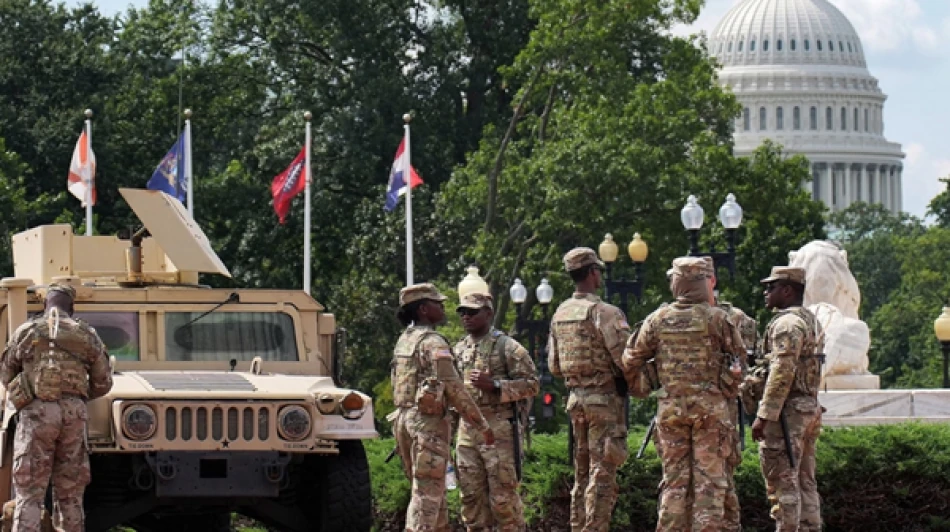
Thousands of National Guard Troops Deployed to Secure Washington, D.C. Amid Heightened Security Concerns
Trump Deploys 800 National Guard Troops to Washington D.C. Despite Declining Crime Statistics
The Pentagon confirmed Thursday that all 800 National Guard personnel ordered by President Donald Trump have been deployed to Washington D.C. as part of what the administration calls a crime-fighting initiative, despite data showing violent crime rates in the capital have actually decreased. The move represents an unprecedented federal takeover of local law enforcement in the nation's capital, raising questions about federal overreach and the militarization of domestic policing.
Full Deployment Complete Amid Questionable Crime Data
Pentagon spokesperson Kingsley Wilson announced that both Army and Air National Guard units are now operational under the "Joint Task Force D.C." framework. The troops will assist the Metropolitan Police Department and federal law enforcement partners in securing landmarks, conducting patrols, and protecting federal facilities and personnel.
The deployment comes despite official statistics indicating that violent crime in Washington D.C. has been trending downward, casting doubt on the administration's stated rationale for the military intervention. This disconnect between the justification and reality suggests the move may be more symbolic than operationally necessary.
Limited Powers but Significant Presence
According to the U.S. Army's statement, the National Guard's primary mission is to provide "visible presence in key public areas" as a crime deterrent. While Guard members cannot make arrests, conduct searches, or direct law enforcement activities, they retain authority to temporarily detain individuals to prevent imminent harm.
The troops are equipped with protective gear, with weapons stored but available if needed. This measured approach appears designed to balance security concerns with avoiding the appearance of martial law, though the distinction may be largely cosmetic for residents experiencing militarized streets.
Federal Takeover Expands Beyond Military Deployment
The National Guard deployment represents just one component of a broader federal takeover of D.C. law enforcement. Attorney General Pam Bondi signed an order Thursday evening granting the head of the Drug Enforcement Administration executive powers over the D.C. police chief, effectively placing the capital's police force under federal control.
This dual approach—military deployment combined with administrative control—creates an unprecedented level of federal oversight over local policing in the nation's capital, potentially setting a concerning precedent for federal intervention in municipal affairs.
Historical Context and Troubling Precedents
The last significant National Guard deployment in Washington D.C. occurred during the civil unrest following George Floyd's death in 2020, when legitimate public safety concerns justified military assistance. The current deployment, however, lacks the same clear and present danger that typically triggers such measures.
Trump's promise to "restore our capital" echoes similar rhetoric used during the Los Angeles protests in June, suggesting a pattern of military deployment in response to perceived rather than actual threats. This approach risks normalizing the use of federal troops for domestic law enforcement, a practice historically limited to genuine emergencies.
Constitutional and Political Implications
The indefinite nature of the deployment—lasting until the President determines "law and order" has been restored—raises significant constitutional questions about federal authority over local governance. Unlike states, Washington D.C. lacks the same protections against federal intervention, making it uniquely vulnerable to such takeovers.
For investors and businesses operating in the capital region, the militarization of law enforcement could signal broader instability concerns, potentially affecting everything from federal contracting to tourism revenue. The optics of troops patrolling American streets rarely inspire confidence in institutional stability, regardless of the stated rationale.
Most Viewed News

 Layla Al Mansoori
Layla Al Mansoori






